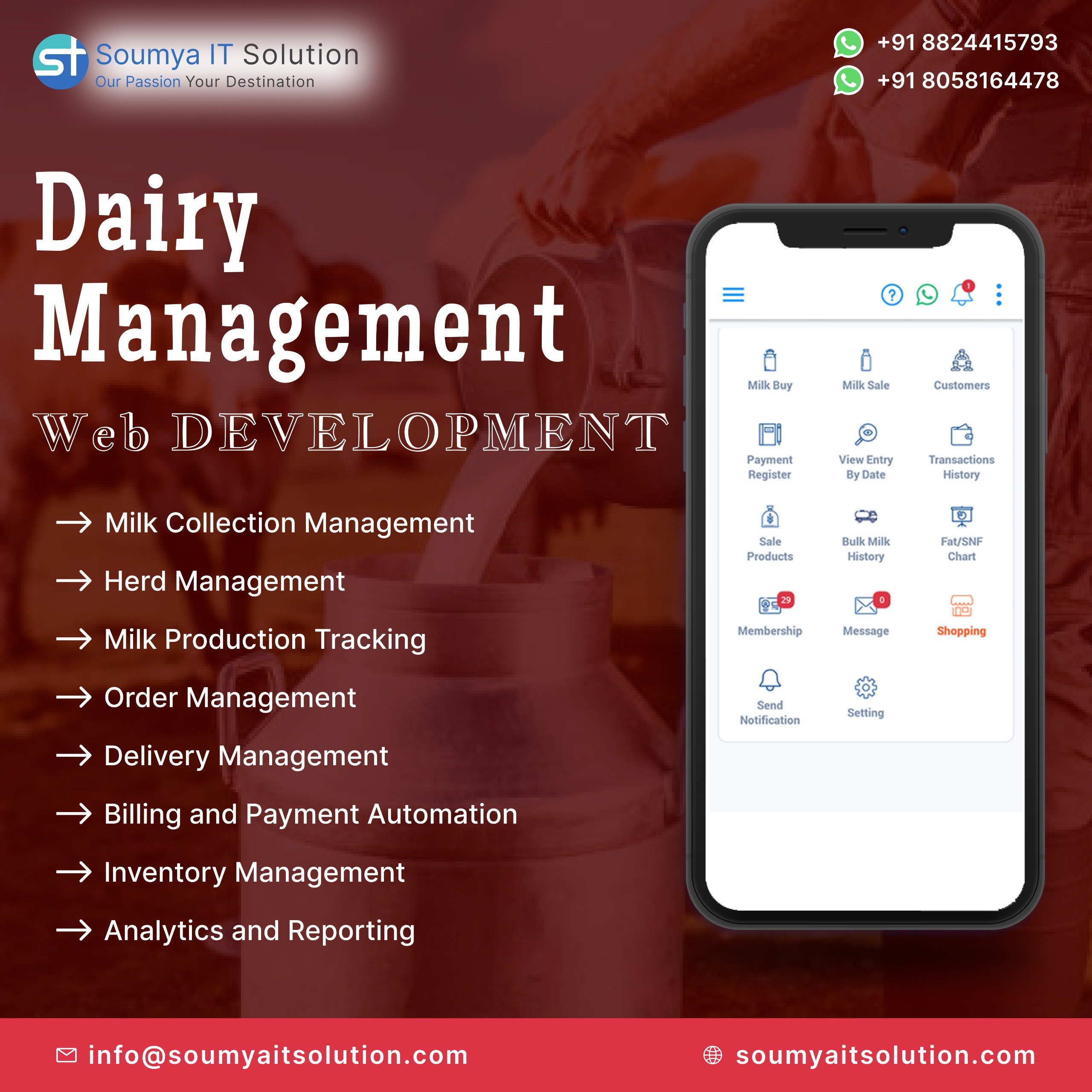India is one of the largest milk producers in the world, and the dairy industry plays a critical role in its economy. Dairy farming not only provides a livelihood for millions of farmers but also contributes significantly to rural development. To enhance the efficiency, sustainability, and overall success of this industry, Dairy Management Development Companies (DMDCs) have become instrumental in driving innovation and creating a more structured ecosystem.
DMDCs such as the National Dairy Development Board (NDDB) and its subsidiaries have pioneered transformative changes in the sector. These organizations focus on streamlining operations, integrating modern technology, and empowering dairy farmers with the tools and support they need to succeed. Let’s take a look at the key features and initiatives that are shaping the future of India’s dairy industry.
1. Integrated Dairy Cooperative Systems
A major initiative by DMDCs is the establishment of automated systems that support dairy cooperatives at all levels. The Automated Milk Collection System (AMCS) is one such example that has significantly improved the operations of dairy cooperatives. This system includes mobile applications and centralized portals that provide real-time data, transparency, and effective monitoring across the entire dairy value chain.
The system is designed to be used by farmers, society secretaries, dairy supervisors, and even higher-level unions and federations. This integration helps streamline operations, improve communication, and ultimately enhances the overall efficiency of milk collection and distribution.
2. Technology-Driven Dairy Management Solutions
In an effort to integrate advanced technology into the dairy sector, companies like Resnova Technologies have introduced innovative solutions such as the Dairy Management System (DMS) and Inline Mastitis Detector (IMD). These products are designed to assist dairy farmers in several ways:
- Early Disease Detection: Through sensor-based monitoring, these systems help detect diseases in cows at an early stage, which can be vital for preventing milk contamination and ensuring healthy livestock.
- Resource Management: The use of these technologies allows for better management of resources, improving overall productivity and reducing waste.
- Data-Driven Insights: These solutions provide valuable insights based on data, helping small and medium-scale dairy farmers optimize their operations for better results.
These technologies make it easier for farmers to access advanced resources that were previously out of reach, helping democratize dairy management for all.
3. Comprehensive Dairy Development Initiatives
The work of DMDCs goes beyond just managing the dairy business. They also play an essential role in fostering dairy entrepreneurship and expanding the dairy economy through various schemes and development initiatives. Notable examples include:
- Dairy Entrepreneurship Development Scheme (DEDS): This scheme provides financial assistance, training, and mentorship to aspiring dairy entrepreneurs. The program offers loans that range from ₹5,000 to ₹2 crore, helping new businesses in the dairy sector grow and thrive.
- Meghalaya Dairy Development Scheme: Focused on skill development, this scheme is designed to diversify livelihoods and empower women in the region. The initiative aims to enhance both economic and social aspects of dairy farming in the state.
These initiatives provide crucial support to those looking to start or scale up their dairy businesses, thus promoting entrepreneurship and self-sufficiency in the dairy sector.
4. Infrastructure and Capacity Building
Infrastructure development is another key area where DMDCs have made significant strides. By investing in essential infrastructure, they help dairy farmers improve efficiency, productivity, and quality. Some of the key areas where infrastructure development has been impactful include:
- Dairy Units and Processing Plants: Establishing processing units enables efficient milk handling, processing, and packaging, ensuring that milk products reach consumers in the best quality.
- Cold Storage and Transportation Systems: These facilities ensure that milk and dairy products are preserved and transported under the best conditions, reducing spoilage and waste.
- Training Programs for Farmers: To build capacity, DMDCs offer a variety of training programs that cover all aspects of dairy farming, from herd management to milk production and processing.
These infrastructural investments enable the dairy industry to run smoothly and sustainably, reducing operational costs and improving product quality.
5. Focus on Quality and Transparency
Ensuring the highest quality of milk and milk products is a priority for DMDCs. By implementing rigorous quality control measures, these organizations adhere to standards set by the Food Safety and Standards Authority of India (FSSAI). These measures help ensure that consumers get safe and hygienic products, which in turn builds consumer trust.
Additionally, DMDCs focus on making dairy cooperatives more transparent and efficient through digital tools. With the integration of technology, farmers and consumers alike can track and trace the milk’s journey from the farm to the table. This transparency promotes ethical practices and ensures that all stakeholders in the supply chain are accountable.
Conclusion
Dairy Management Development Companies are playing a transformative role in shaping the future of the dairy industry in India. Through technological innovation, infrastructure development, and various support schemes, they have created an environment where dairy farmers can thrive. As these companies continue to drive change in the sector, the dairy industry will become even more efficient, transparent, and sustainable—ensuring better livelihoods for farmers and a more reliable milk supply for consumers.
With the continued growth and support of DMDCs, India’s dairy industry will not only maintain its position as a global leader in milk production but will also provide a blueprint for other nations looking to enhance their own dairy industries.
#DairyManagement #DairyInnovation #SustainableDairy #DairyFarming

